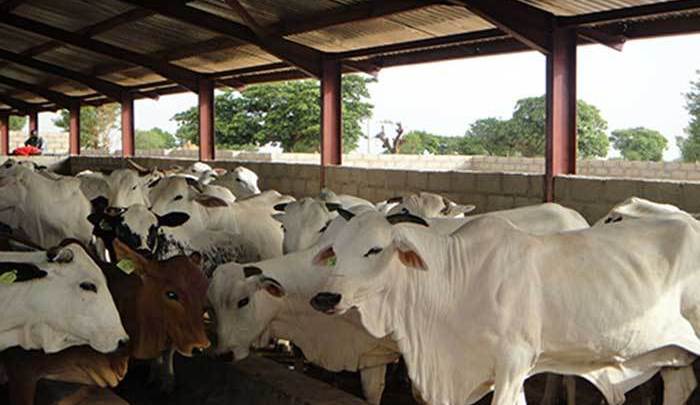The federal government has expressed optimism that Nigeria could unlock a $74 billion livestock economy by 2040, with the right investments, policy coherence, and innovation across the livestock value chain.
Idi Maiha, the minister of Livestock Development, made this known at the 2025 Animal Science Meeting and Industry Exposition, held on Tuesday in Abuja.
Maiha said the creation of the Ministry of Livestock Development by President Bola Ahmed Tinubu reflects the administration’s determination to reposition the livestock industry as a major contributor to Nigeria’s GDP, food security, and job creation.
Read also: From conflict to fodder: A practical fix for Nigeria’s livestock feed gap
He urged animal scientists and stakeholders to develop improved indigenous breeds capable of meeting global productivity benchmarks and enhancing the country’s competitiveness in the red meat and dairy markets.
“We want to see Nigerian breeds that can achieve a daily weight gain of two kilograms, be bred at the age of 15 months, and produce a minimum of 45 litres of milk a day. The future of this industry is in our hands, and the President is fully committed to supporting this transformation,” Maiha stated.
The minister, who recently represented Nigeria at global livestock forums, noted that international partners are increasingly enthusiastic about the country’s renewed focus on the sector. He added that the Gulf red meat market, valued at over $3.2 billion, presents immediate export opportunities for Nigeria if productivity and quality standards are improved.
“Our population is an asset, not a burden. We have the talent, the market, and the political will to turn this sector around. These 230 million mouths must drink fresh milk from Nigerian cows and eat prime cuts from Nigerian beef,” he added.
Delivering the keynote presentation, Tunde Amole projected that with coherent policies, targeted investment, and inclusive partnerships, Nigeria’s livestock industry could unlock $74 billion in economic value by 2040, creating millions of jobs and advancing food security.
Read also: Minister hails Katsina’s livestock policies, pledges FG support
He outlined six strategic pillars for sectoral transformation — productivity improvement, feed and fodder security, infrastructure and market development, financing and investment mobilization, policy and governance, and climate resilience and sustainability.
According to Amole, while the livestock sector contributes about 40 percent of agricultural GDP globally, Nigeria’s investment in the subsector remains low. He stressed that increased funding, technological adoption, and coordinated policy action are essential to realizing its full potential.
In his remarks, Simeon Ohwofa, President, Nigerian Institute of Animal Science (NIAS), commended President Tinubu for creating the new ministry, describing it as a milestone that aligns Nigeria’s livestock development with global best practices.
He disclosed that the Institute has registered nearly 3,000 animal scientists, who are being equipped to drive professional excellence and innovation across the value chain.

